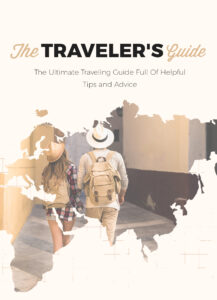What’s the Best Way to Avoid Jet Lag?

Before diving in, please note: This post is for informational purposes only. If you’d like to know more about how we approach topics, feel free to check out our friendly Disclaimer Page.
Hey there, amazing readers! 🖐️ Just a quick note: yes, we know there are a lot of ads here. Trust us, we get it—it’s not the prettiest look, but they help us keep this blog alive and kicking. Those pesky little ads cover the costs of all the behind-the-scenes magic, from hosting and tech stuff to creating content we hope you’ll love.
We’re committed to delivering quality posts, and your support (even just sticking around despite the ads) means everything to us. So, bear with us, and thanks for helping us keep the good vibes rolling. Now, on to the fun stuff! 😉
TRANSLATE BUTTON AT THE END OF THE ARTICLE
We’ve all been there: the excitement of traveling to a new destination, only to be met with the uncomfortable and exhausting effects of jet lag.
That groggy feeling, a disrupted sleep schedule, and the struggle to adjust to a new time zone can make even the most thrilling trips feel a little less fun.
But don’t worry!
There are plenty of ways to manage and even avoid jet lag, so you can step off the plane feeling refreshed and ready to explore.
In this guide, we’ll explore the best strategies for preventing and combating jet lag.
From preparing before your trip to adjusting once you arrive, let’s dive into the world of jet lag prevention and get you on the path to a smoother travel experience.
1. Gradually Adjust Your Sleep Schedule Before You Leave
Why It Works
One of the best ways to combat jet lag is by getting your body used to the time zone of your destination before you even board your flight.
This gradual adjustment allows your internal clock (also known as your circadian rhythm) to sync up with the new time zone in advance, making the transition much easier.
How to Do It: A few days before you leave, try shifting your bedtime and wake-up time closer to the schedule of your destination.
If you’re flying east (to a time zone ahead), try going to bed earlier.
If you’re flying west (to a time zone behind), stay up later.
How Much Time: Aim to adjust your schedule by 30 minutes to 1 hour each day leading up to your departure.
2. Stay Hydrated During Your Flight
Why It Works
Dehydration can make the symptoms of jet lag worse.
The dry air in an airplane cabin can leave you feeling parched, which can lead to fatigue and headaches.
Staying hydrated helps to reduce these effects and keeps you feeling more energized when you land.
How to Do It: Drink plenty of water before, during, and after your flight.
Avoid alcohol and caffeine, as both can dehydrate you and disrupt your sleep patterns.
Tip: Bring an empty water bottle to the airport and fill it up after you pass security, so you have easy access to water throughout your flight.
3. Use Light Exposure to Your Advantage
Why It Works
Light is a powerful tool when it comes to resetting your internal clock.
Exposure to natural light at the right times can help signal to your body when it’s time to sleep and when it’s time to wake up.
How to Do It: Once you arrive at your destination, spend as much time as possible outdoors in natural sunlight.
If you’re traveling to the east (a time zone ahead), expose yourself to morning light.
If you’re traveling west (a time zone behind), aim for afternoon light.
Tip: Try not to take naps during the day if you arrive early in the morning.
Even if you’re exhausted, pushing through the first day will help you adjust faster.
4. Take Short Naps (But Don’t Overdo It)
Why It Works
While you’ll want to adjust to your new time zone as soon as possible, it’s understandable that you might feel extremely tired after a long flight.
Short naps can help recharge your energy levels without interfering too much with your ability to fall asleep later at night.
How to Do It: If you need a nap, keep it short—about 20 to 30 minutes.
Avoid napping for several hours, as that can make it harder to adjust to the new time zone.
Tip: Set an alarm to keep your nap short, so you don’t accidentally sleep too long.
5. Adjust Your Meals to the New Time Zone
Why It Works
What you eat—and when you eat—can play a significant role in how quickly you adjust to a new time zone.
Discover "The Traveler’s Guide: Your Ultimate Companion for Every Adventure ✈️"
Timing your meals to coincide with the local meal schedule at your destination can help signal to your body that it’s time to be awake and alert or time to wind down for sleep.
How to Do It: Start eating meals according to the time zone you’re traveling to, even before you leave.
If it’s morning at your destination, try eating a breakfast-like meal, even if it’s a few hours before your usual meal time.
Tip: Avoid heavy, rich, or fatty meals close to bedtime.
Eating lighter meals will make it easier to sleep.
6. Get Plenty of Sleep Before Your Trip
Why It Works
Being well-rested before you travel can help you better cope with the physical and mental strain of a long flight.
If you’re already running on little sleep, the effects of jet lag will be even more pronounced once you arrive.
How to Do It: Make sure you get a good night’s sleep for a few days leading up to your trip.
If you have trouble sleeping, consider taking natural sleep aids, like melatonin (more on that in a bit).
Tip: Try to get 7-8 hours of sleep a night before traveling to ensure you’re rested and ready for your trip.
7. Consider Using Melatonin
Why It Works
Melatonin is a natural hormone that helps regulate your sleep-wake cycle.
Taking melatonin supplements can be particularly helpful if you’re adjusting to a new time zone and need a little extra help falling asleep at the right times.
How to Do It: Melatonin is available over-the-counter in most places.
If you’re traveling to a time zone ahead of your current location, consider taking melatonin about 30 minutes to an hour before bedtime to help you fall asleep at the right time.
Tip: Only use melatonin for short periods, as long-term use can interfere with your body’s natural circadian rhythm.
8. Avoid Caffeine and Alcohol
Why It Works
Caffeine and alcohol may seem like they’re helping you get through your flight, but they can actually disrupt your sleep and make jet lag worse.
Both are diuretics, meaning they can dehydrate you, and they affect your sleep quality, preventing you from getting restorative rest.
How to Do It: During your flight and in the days following your arrival, try to avoid consuming caffeine and alcohol, especially in the hours leading up to bedtime.
Tip: If you need an energy boost during the day, opt for water or a natural fruit juice instead.
9. Keep Your Stress Levels in Check
Why It Works
Travel can be stressful, and when you’re stressed, your body’s ability to adjust to a new time zone is compromised.
Stress can affect your sleep, digestion, and overall energy levels, making jet lag feel even worse.
How to Do It: Practice stress-reducing techniques, such as deep breathing, stretching, or meditation.
Taking short walks during your trip can also help reduce feelings of stress and anxiety.
Tip: Create a travel-friendly relaxation routine, such as reading, listening to calming music, or journaling before bed to help you wind down.
10. Give Yourself Time to Adjust
Why It’s Important
Jet lag doesn’t disappear overnight, and it can take a few days to fully adjust to a new time zone.
While the above tips can help, be patient with yourself and allow time for your body to get used to the new schedule.
How to Do It: If possible, give yourself a day or two to rest and adjust when you first arrive at your destination.
It’s okay if you don’t feel 100% right away.
Tip: Don’t push yourself too hard during the first few days.
Take it easy until you’re fully adjusted to the local time zone.
Conclusion
Jet lag is a common part of traveling across time zones, but it doesn’t have to ruin your trip.
By following these tips—adjusting your sleep schedule, staying hydrated, getting plenty of sunlight, and managing stress—you can greatly reduce the effects of jet lag and start your vacation feeling refreshed and ready to explore.
Remember, while it may take a little time for your body to fully adjust, with the right strategies in place, you’ll be well on your way to a smoother, more enjoyable travel experience.
Safe travels!

The Enlightenment Journey is a remarkable collection of writings authored by a distinguished group of experts in the fields of spirituality, new age, and esoteric knowledge.
This anthology features a diverse assembly of well-experienced authors who bring their profound insights and credible perspectives to the forefront.
Each contributor possesses a wealth of knowledge and wisdom, making them authorities in their respective domains.
Together, they offer readers a transformative journey into the realms of spiritual growth, self-discovery, and esoteric enlightenment.
The Enlightenment Journey is a testament to the collective expertise of these luminaries, providing readers with a rich tapestry of ideas and information to illuminate their spiritual path.
Our Diverse Expertise 🌟
While our primary focus is on spirituality and esotericism, we are equally passionate about exploring a wide range of other topics and niches 🌍📚. Our experienced team is dedicated to delivering high-quality, informative content across various subjects ✨.
To ensure we provide the most accurate and valuable insights, we collaborate with trusted experts in their respective domains 🧑🏫👩🏫. This allows us to offer well-rounded perspectives and knowledge to our readers.
Our blog originally focused on spirituality and metaphysics, but we’ve since expanded to cover a wide range of niches. Don’t worry—we continue to publish a lot of articles on spirituality! Frequently visit our blog to explore our diverse content and stay tuned for more insightful reads.






